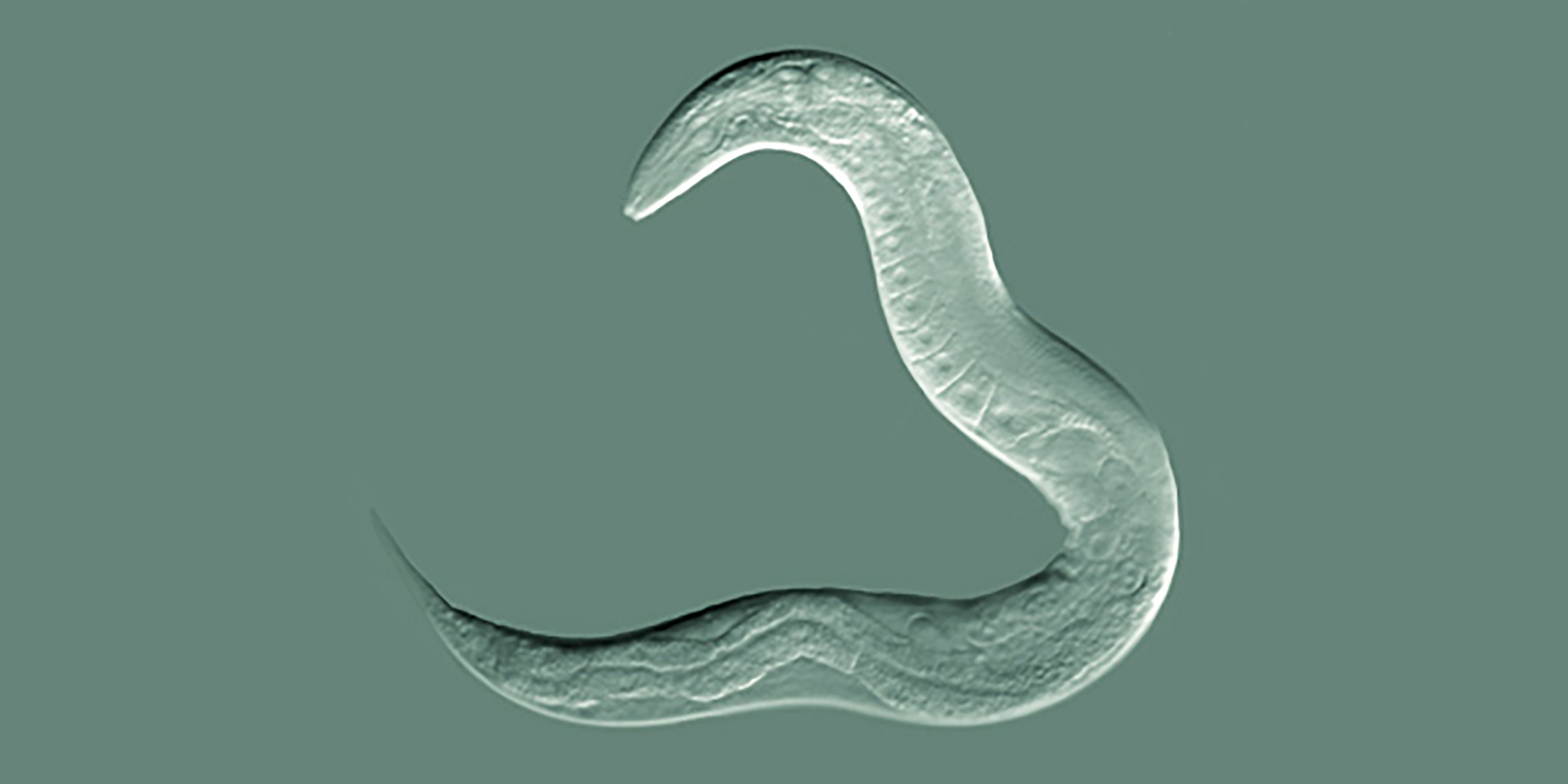Originally published 11 February 2003
“If you haven’t already met Caenorhabditis elegans, you really should. This little worm…” “Worm?”
“Yes, a tiny worm that lives in the soil and eats bacteria. About as big as this letter i.”
“Why should I want to meet a worm?
“Well, as I was about to say, this little worm may have much to tell us about why we get old and die, among other things. It is one of the favorite experimental animals of genetic researchers.”
“What makes it so popular?”
“It is cheap to feed and keep. Ten thousand worms can live happily in a petri dish, reproducing every few days. Best of all, they are about as simple as an animal can be and still have much in common with us.”
“Whoa! How is a worm like us?”
“C. elegans has a primitive sort of brain and a nervous system that lets it respond to taste, touch, and smell. It produces eggs and sperm. It grows old and dies. All this with only 959 cells, exactly, compared with tens of trillions of cells in a human body.”
“I didn’t realize so few cells could do so much.”
“That’s the beauty of C. elegans. Moreover, the worm’s genetic code has been sequenced. Scientists have the complete genetic script for making the worm, starting with a fertilized egg. Approximately 18,000 genes on six chromosomes.”
“And now you are going to tell me that scientists have used the worm to identify the human gene for old age?”
“Not exactly. We don’t yet fully understand what causes senescence — aging — in C. elegans, much less in humans. Aging is a complex process involving hundreds of genes in worms. Who knows how many in humans?”
“So, what’s the big deal?”
“Well, nevertheless, certain progress has been made. For example, lots of genes have been identified in C. elegans that when mutated extend the worm’s lifetime. One of these genes codes for a protein called DAF‑2 that is similar in structure to human proteins that allow cells to respond to insulin or insulin-like growth factors. When the activity of this protein is reduced in worms, lifespan is doubled.”
“Lucky worms.”
“A recent study shows that reducing the level of a similar protein in lab mice — by genetic modification — lets the mice live about a quarter longer than their wild counterparts, apparently with no ill effects on growth, development, or reproduction.”
“Mice are mammals, like us. Does that mean I can look forward to an extra score of years?”
“Don’t bet on it. No one is even talking about modifying human genes to create a race of Methuselahs. For one thing, such experiments would be unethical and illegal. But it’s not impossible that by getting a firmer grip on the causes of human senescence, therapies might become available that let us combat age-related diseases. That’s where C. elegans holds promise.”
“What about down the line? What’s unethical and illegal for one generation might be standard practice for the next. Isn’t it possible that humans might one day live twice as long, like the worms? Or become potentially immortal?”
“Not impossible, I’d say, but not likely to happen any time soon.”
“Too late for me, huh?”
“Yes, too late for you — if that’s what you want. As for me, I wouldn’t mind reasonably good health until the day I die, but as for living longer…”
“On Social Security…”
“The social implications of longer human lifespans are too awesome to contemplate. It’s one thing to have 20 thousand worms rather than 10 thousand in a petri dish. But our poor planet can barely support the human population it bears now.”
“Well, I wouldn’t mind living twice as long. Or forever.”
“Where their worm dieth not…”
“What’s that?”
“Oh, nothing. Just a line I remember from Scriptures. Had something to do with hell, I think.”



